With 21st century America's pastime right around the corner, and in light of recent developments in college sports, I thought the following article on powerful college coaches would be fitting. This article was submitted to us by Elena Verlee of Online Colleges. The original article can be found on the news blog at http://www.onlinecolleges.net/.
10 Colleges With the Most Powerful Coaches
July 17, 2012
Ideally, colleges should be well-known, desirable, and popular because of the high quality of educational resources they offer students and other members of the community. Yet, here in the U.S. that’s not always the case. Many schools’ academic programs are eclipsed by the overwhelming popularity of their sports teams, and for better or worse that has made the coaches and head administrators of these teams incredibly powerful figures that dominate what has now become a billion-dollar industry for colleges and universities.
Often, these college coaches command multi-million dollar salaries that outpace those of any other figures at the school (and the budgets of some entire departments) and may even hold quite a bit of influence over the college president and the direction of the school itself. While some coaches have done a lot to help schools, their athletes, and their image through their influence, others have abused their power and made some pretty poor and sometimes downright appalling decisions. The coaches that follow have been some of the most powerful in recent sports history and are well known for their winning streaks, high profiles, and in some cases, distressingly unprofessional misdeeds.Penn State, Joe Paterno:
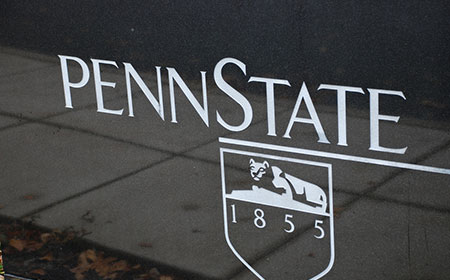
Paterno was head coach of the Nittany Lions for almost 46 years and holds the record for the most victories by an NCAA Division I coach. He coached five undefeated teams, won major and memorable games, and was inducted into the College Football Hall of Fame in 2007. In short, he was one of the winningest and most powerful figures in college football, yet that power had a dark side, as was revealed in 2011. Paterno was fired from Penn State when it was revealed that he not only had knowledge that assistant coach Jerry Sandusky was abusing young men but actively dissuaded other university officials from reporting him to the authorities. Celebrity, high salary, success, a long tenure, and the support of team boosters and college donors gave Paterno power at the university that he shouldn’t have had, influencing the decisions of the board and the president, making him almost impossible to fire, and ultimately causing harm to dozens of young men that could have easily been prevented. Paterno is perhaps one of the clearest and most saddening examples of a college coach who had too much power for far too long.University of Alabama, Nick Saban:

Those who are outraged by how much university administrators make only need to look at astronomically high coaching salaries to put things into perspective. Nick Saban currently holds the record for the highest salary ever paid to a college coach: $32 million over eight years, with use of a university airplane, two cars, and a country club membership to boot. It’s a testament to his power and status at the university that he was able to command this amount, and in 2008 Forbes called him the “Most Powerful Coach in Sports.” More than his salary, however, gained him this distinction. Saban was given complete control over the football program, including recruiting, coaching, business administration, and even marketing. So far, the investment seems to be paying dividends to the university, with a profit of $32 million in his first year of coaching alone and bringing in even more through donations from alumni and school supporters.Ohio State, Jim Tressel:
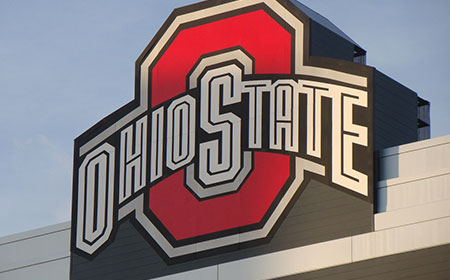
Think college coaches aren’t really all that powerful? Jim Tressel admitted in 2010 that he had knowledge of his players taking money and tattoos from a drug dealer, concealed this information and did not report it to authorities, let these players start in games, and after all that was defended by the university president for these actions. In fact, Ohio State president Gordon Gee stated that, “I’m just hopeful the coach doesn’t dismiss me.” Gee may have been joking, but there is some distressing truth in his statement about the skewed balance of power in college sports today. Despite his improper actions, Tressel still had the support of the school and the community, with fans showing up at a pep rally to support him. While he was ultimately allowed to resign (a controversial decision in itself), his reputation doesn’t seem to be as tarnished as it should have for his actions, and he now works at the University of Akron as a vice president.Indiana University, Bobby Knight:
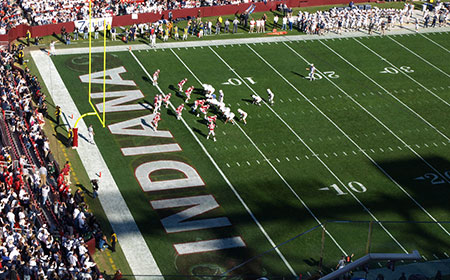
Bobby Knight has worked for a number of college teams in his coaching career, each time helping the teams to turn around and become winners, most famously at Indiana where he led the Hoosiers to numerous championships, won several Coach of the Year honors, and was even asked to coach the U.S. Olympic team. Yet Knight is as famous for his fits of temper as his high win count. During his tenure at Indiana he spewed profanities during an NCAA tournament news conference; kicked his son, an IU assistant, and responded with a four-letter obscenity to Indiana fans behind him who booed; refused to let his team finish an exhibition game against a Soviet team; and even purportedly choked one of his players. During all of this bad behavior, Knight was never under any threat of being fired by university president John Ryan who said he couldn’t fire Knight because of the alumni. In fact, it wasn’t until Ryan was replaced as president that Knight was ousted, with Myles Brand making a name for himself at the university for those actions. However necessary, Brand would face outrage, protests, and even threats for his actions, which in retrospect were long overdue and well within his power.Florida State, Bobby Bowden:

Bobby Bowden is one of the most decorated coaches in college sports history, winning an impressive 389 games (though some of those wins were vacated after it was revealed that ineligible players were on the field). Bowden may have an impressive record, but he’s another coach who held perhaps a little too much sway at his college. In 2008 the head of the Board of Trustees asked Bowden to step down in light of recent losses and Bowden’s advanced age (at the time, he was turning 80). Bowden responded that he would let them know if he wanted to come back or not, publicly demonstrating for all to see who was really in control of the situation. Even the governor of Florida announced that he supported Bowden if he chose to return to coach and that he considered him one of the greatest coaches of all time, wishing him luck for the season. Bowden would eventually retire on his own terms, but his power over the university and the community makes him stand out as one of the most influential coaches to ever work in college sports.University of Louisville, Rick Pitino:
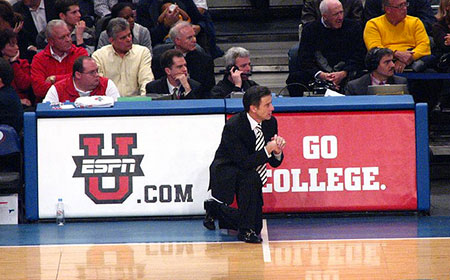
The only coach to ever lead three separate teams to the Final Four, Rick Pitino was a college sports heavy hitter, a fact that was also evidenced by his incredible $7,531,378 a year salary. Yet his position at the school, perhaps cemented by this winning history, was so solid that even a major scandal couldn’t shake it. Despite his contract stating that Pitino could be fired for “acts of moral depravity or misconduct that damage the university’s reputation,” he held onto his job after it was discovered that he had sexual relations with a woman in a Louisville restaurant then paid her to have an abortion and keep quiet about the tryst. Those actions may have done damage to the university’s reputation, but university president James Ramsey decided that the damage would be worse if the school lost Pitino, allowing him to stay on as coach. After this year’s winning season and healthy prospects for next year, Ramsey probably feels pretty justified in that decision, though he’s made it quite clear where the university’s priorities lie.University of Florida, Urban Meyer:
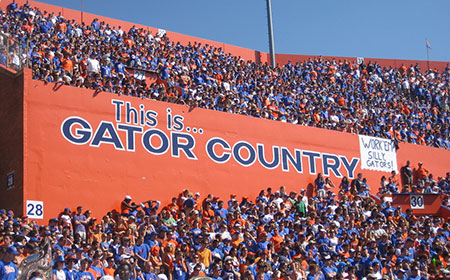
Urban Meyer is in the top echelon of college coaches when it comes to salary, pulling in a contract with the University of Florida that promised him a whopping $24 million over six years. He has since moved on to Ohio State, where he commands $4 million a year, bonuses, and the use of a private jet. Unlike many others on this list, Meyer has generally held himself above many of the problems that have affected other powerful college teams, a big part of what helps him command such a high salary. Yet when he resigned from Florida in 2009, some pointed to serious problems with the team, including drug use, preferential treatment, entitlement, and scholarship manipulation. Meyer has denied these allegations, but with misbehavior and rule violations so prevalent in college sports and kept so deeply under wraps by embarrassed schools, it may never be known what truly happened.Duke University, Mike Krzyzewski:
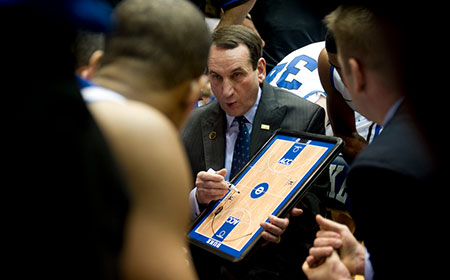
Sometimes just called Coach K, this Duke coach has led his team to four NCAA championships, 11 Final Fours, 12 ACC titles, and 13 ACC championships. He’s also the coach of the men’s national basketball team, winning gold at the 2008 summer Olympics and hoping to lead this year’s team to a repeat victory. For his expertise, he’s paid pretty well, pulling in a whopping $4,195,519 during the 2010-2011 season. What’s more, he seems to have thus far avoided many of the scandals that have plagued other high-profile coaches, instead being better known for helping ensure almost all of his players graduate. He did raise eyebrows with recent comments in defense of Paterno, stating that the iconic coach’s record of winning shouldn’t be wiped clean because of recent revelations of misconduct. Many have found this distressing, as it reflects and increasingly common attitude that gives winning games more importance than doing the right thing.University of Connecticut, Geno Auriemma:

So far, all the coaches on this list have been for men’s sports, but there are some women’s sports coaches who stand out for their power on college campuses as well. Geno Auriemma is one of those coaches. He has led the Huskies to seven NCAA Division I championships, won six Naismith College Coach of the Year awards, and is the head coach of the U.S. women’s national team in this year’s Olympic games. He has long enjoyed a rivalry with Pat Summitt of the University of Tennessee, with each vying to coach the best women’s basketball teams. While Auriemma has largely enjoyed a spotless record at UConn, a recent lawsuit may tarnish that, as an NBA official for the Olympics claims Auriemma harassed her and then had her fired. The allegations may be proven to be false, but for now many are hoping that the legal trouble doesn’t distract Auriemma from coaching the women’s team to victory.University of Tennessee, Pat Summitt:
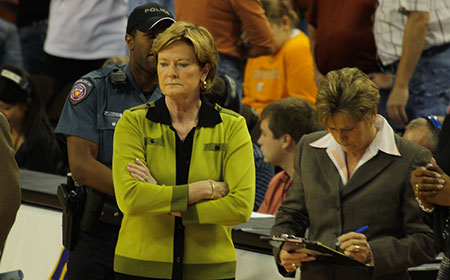
As unfair as it may be, women’s sports often don’t get as much attention on college campuses, nor do their coaches. Yet Pat Summitt made a name for herself during her tenure at the University of Tennessee coaching the Lady Volunteers basketball team. She is the all-time winningest coach in NCAA history in either men’s or women’s basketball, for all divisions. During her time at Tennessee, Summitt led her team to eight national championships, earning 1,098 victories during her 38 years as coach, and never once having a losing season. In both 1997 and 2000, Tennessee asked Summitt to coach the men’s team, an unprecedented move, but Summitt declined the offer, opting to stick with the women’s team. She was so well-regarded as a coach that she was awarded the Presidential Medal of Freedom in 2012 by Barack Obama. That’s a kind of power and prominence that no other coach on this list can match.
To advertise with The Daily Hat Trick, or to submit a guest column, please contact the editor at eric@thedailyhattrick.info.
The Daily Hat Trick is sponsored by Sports N Stuff. For great deals on jerseys, shirts, cologne, and other guy stuff, visit http://www.sportsnstuff.biz/.
No comments:
Post a Comment